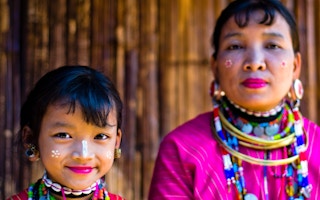A new international fund backed by wealthy nations aims to invest at least $500 million in protecting nature in developing countries and giving indigenous people a bigger role in conserving their environment and tackling climate change.
The Climate Investment Funds (CIF), one of the world’s largest multilateral climate financing instruments, launched its “Nature, People, and Climate” (NPC) programme on Wednesday at a major UN environment conference in Stockholm.
Backed so far by Italy and Sweden, and with a target of raising $500 million by November, the NPC will provide finance and expertise to initiatives that conserve wildlife, plants and forests, promote sustainable agriculture and food supplies, and enable people to cope with rising seas and extreme weather.
“Nature-based solutions help reduce emissions, support communities adapting to a changing climate and protect biodiversity,” Matilda Ernkrans, Sweden’s international development minister, said in a statement.
“
This is more than just about working with them - it’s about putting them in positions of being the decision-makers. It’s about them being at the table and making decisions and using their knowledge.
Paul Hartman, senior environmental specialist, Climate Investment Funds
Improving conservation and management of natural areas, such as parks, oceans, forests and wildernesses, is seen as crucial to safeguarding the ecosystems on which humans depend and to limiting global warming to internationally agreed targets.
But forests are still being cut down - often to produce commodities such as palm oil, soy and beef - destroying biodiversity and threatening climate goals, as trees absorb about a third of planet-warming emissions produced worldwide.
The new NPC programme expects to invest in efforts to expand approaches like carbon storage, mangrove restoration and climate resilience in small island developing states, sub-Saharan Africa and forested countries around the globe
They are among the places hit hardest by the impacts of the Covid-19 pandemic and rising food and energy prices fuelled by the Ukraine war, said Paul Hartman, a senior environmental specialist at the CIF.
“Many of these shocks that you see globally to food systems have an impact on countries’ economies but particularly on (the) economies of the farmers and livelihoods of people,” he told the Thomson Reuters Foundation.
Global annual spending to protect and restore nature on land needs to triple this decade to about $350 billion by 2030, a UN report said last year.
Boosting finance for developing nations to better protect their nature-rich ecosystems is a longstanding challenge.
Earlier this year, international green groups called on the world’s richest nations to provide at least $60 billion a year to protect and restore biodiversity in developing countries.
The NPC platform aims to invest in nature projects that are part of larger, national investment plans, also involving multilateral development banks, with the aim of raising more finance from the private sector and other sources, said Hartman.
In addition, the NPC aims to partner with indigenous groups and communities living in and around protected areas, who experts say play a vital role in conservation.
“This is more than just about working with them - it’s about putting them in positions of being the decision-makers,” Hartman said.
“It’s not just about involving them, it’s about them being at the table and making decisions and using their knowledge.”
This story was published with permission from Thomson Reuters Foundation, the charitable arm of Thomson Reuters, that covers humanitarian news, climate change, resilience, women’s rights, trafficking and property rights. Visit http://news.trust.org/climate.










